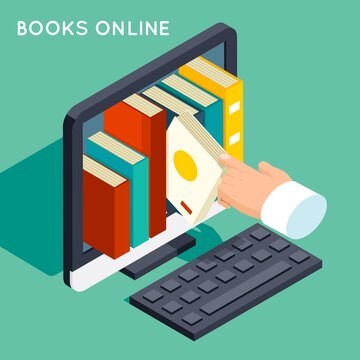How to Become A Better Reader
 |
| Photo: Freppik |
We increasingly read books in a range of formats and on a variety of devices – not just on paper. But ask yourself if you are reading effectively?
In this article, we look at a range of strategies for becoming a better reader.
1. Know What You're Reading – and Why
 |
| Photo: The Balance Newsletter |
Before you begin, ask yourself: What is the purpose of the text? For example, is it to entertain, inform, explain, or persuade?
Next, is it useful, relevant, accurate, impartial, current – or not. This will decide if it is worth reading and what you are reading it for.
This step is to choose the most effective reading strategies. In the long run, you will gain a habit of making better use of your time, and understand, remember and apply more of what you read.
So, don't just dive straight in. Invest a few minutes in preparing to get the most from reading:
- Use the cover, title page, introduction, and any other general information, to get an overall sense of the content and approach.
- Dip into the text here and there, to tune in to the author's tone of voice.
- Notice any additional features that might help you to engage with the information.
- Read the Contents, look at how the information is organized, and start spotting the sections that will likely be most important for you.
2. Identify Key Information
 |
| Photo: Freepik |
If you do not need to read something in detail, find the quickest ways to extract the basics.
Use chapter headings, abstracts and summaries. Look for illustrations and graphics. And focus on "user-friendly" features like fact boxes and bullet points.
It helps to know where to look for the key information. So spotting particular structures in writing can help your reading be even more efficient.
For example, a news article usually summarizes a story in the first few lines, then adds layers of detail, which you may decide you can "skim read."
In an opinion article, the important information is likely contained in the introduction and the summary, with supporting arguments in between. When you've read the start and end, you can decide how much of the middle you need to explore.
A feature article tends to have its most important information in the main body of the text, so you may decide it is best to start there.
When you're reading digital texts, you can use the search tools in your browser or text editor to find key words or phrases.
3. Explore introductions and summaries
When you need more than just a basic understanding, keep using introductions and summaries, but explore them in more detail.
You can still "speed read" chapters, but spend enough time on the key words and concepts and make sure that you haven't overlooked any important points.
Pay attention to diagrams, charts and graphs, as they are often used to explain complex ideas within the text.
And make simple annotations, or highlight important words and phrases, to ensure that you're reading to the level of detail required.
Many online articles and electronic documents were not originally designed to be read on a screen so you should consider printing it.
 |
| Photo: Goalcast |
4. Recall and Review the Text
When "deep reading" is required, maybe to teach, or to remember for an exam, use step-by-step approach involves surveying the material, using key questions to guide you, then thoroughly reading, recalling and reviewing the text.
It checks that you really understand what you are reading, and increases your chances of remembering it.
If you're reading large amounts of difficult, technical material, try using a glossary. Or, even better, compile one of your own!
Practice "active reading," by highlighting and underlining as you go, and by recording key information. Try putting the ideas you read into your own words, too, by writing them up.
And talking to others can also make reading even more productive.
5. Control your reading environment
 |
| Photo: Medium |
If you often find yourself dozing off after only skimming a few pages, your reading environment is likely not the best time or place for in-depth study!
To give yourself the best chance of reading effectively, always think about where and when to do it.
You must ensure that your reading environment is comfortable but not too comfortable!
Also, schedule difficult reading tasks when your brain is at its best, that is early morning or whenever you are free from distractions.
 | Top 10 Things You Do Wrong When Cold Calling and How to Fix Them According to professional marketer Charlie Cook, about 2% of cold calls result in a sale, and there is always something you can do better to ... |
 | How to Choose the Right Forex Broker If you have thought about trading currency pairs in the forex market and you are ready to give it a try, one of the first ... |
 | The Ultimate Guide On How To Travel Cheap It's a common idea that travel costs a lot of money, but it is also possible to travel on a budget to save as much ... |
Recommended
 Handbook
Handbook
Vietnam Moves Up 8 Places In World Happiness Index
 Handbook
Handbook
Travelling Vietnam Through French Artist's Children Book
 Multimedia
Multimedia
Vietnamese Turmeric Fish among Best Asian Dishes: TasteAtlas
 Handbook
Handbook
From Lost to Found: German Tourist Thanks Vietnamese Police for Returning His Bag
Popular article
 Handbook
Handbook
Prediction and Resolution for the Disasters of Humanity
 Handbook
Handbook
16 French Films To Be Shown For Free During Tet Holiday In Vietnam
 Handbook
Handbook
Unique Cultural and Religious Activities to Welcome Year of the Snake
 Handbook
Handbook







